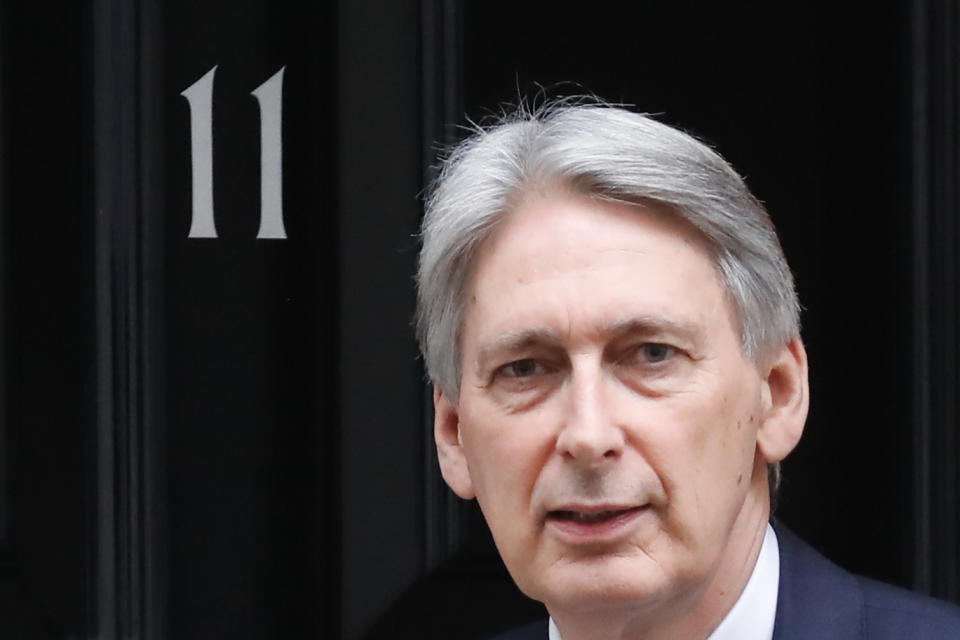What to expect from the Chancellor's spring statement

Chancellor Philip Hammond will present his spring statement to the House of Commons at 12.30pm on Wednesday.
The statement is a chance for the Chancellor to update MPs on how the UK’s economy has fared since the budget in October. He will announce any revised forecasts for economic growth from the Office for Budget Responsibility (OBR), the independent economic forecasting body that marks the government’s homework.
The statement from Hammond comes at a crucial period for the UK, with Brexit just weeks away and little sign of agreement on an exit deal.
Here are the key announcement we can expect from the Chancellor, according to economists:
No major policy announcements
After a “giveaway budget” in October that was “the biggest fiscal loosening since the recession following the financial crisis” according to Nomura, economists aren’t expecting any major policy announcements from the Chancellor.
“Next week’s affair will merely be an update on the state of public finances,” economists at Deutsche Bank wrote in a note previewing the statement.
Number crunchers at Credit Suisse said they expect the speech to be “an update on the health of the economy and public finances, rather than major policy announcements.”
This isn’t unusual but the backdrop of a looming, uncertain Brexit and weak global growth forecasts means the government is especially unlikely to spring any spending surprises.
Better public finances
Economists are united in expecting Hammond to announce that government borrowing this year is set to be lower than previously forecast.
“There is little more satisfying for a chancellor of the exchequer to find out that in the month before you are due to make your Spring Statement to the House of Commons that the public finances are showing a record surplus,” Nomura’s chief UK economist George Buckley and team wrote in a preview note.
“January is typically a surplus month thanks (largely) to income tax receipts, which this January rose by some 15% compared with the same month a year earlier.”
Nomura expects Hammond to cut the government’s forecast deficit for the year to £23.5bn, around £2bn lower than the OBR’s forecast four months ago. UBS, Credit Suisse, and Barclays also expect the chancellor to announce that public sector net borrowing — the amount needed to borrow to cover the deficit — is forecast to be lower than previously thought this year.
Worse growth
However, while borrowing looks rosier in the short-term, analysts think that longer-term borrowing will have to be revised upwards.
Deutsche Bank, for example, thinks borrowing will rise to £33.9bn in 2019/20 as “the prolonged uncertainty in Q1-2019 will more likely see the OBR revise down its growth forecast to a similar pace as the Bank of England (1.2%).” Lower growth means less tax take, means more borrowing to meet spending commitments.
“Longer term, the OBR forecasts still look elevated as the economic drag from Brexit uncertainty has become more evident since the October budget,” Barclays’ economics team wrote.
Barclays, UBS, and Credit Suisse all expect the OBR to cut its forecast for GDP growth this year. Consensus is a cut to 1.4%, down from an earlier estimate of 1.6%.
Environment and sustainability
The Chancellor is also expected to talk about environment and sustainability, according to a briefing sent to journalists, although concrete policy measures are not expected.
Hammond will announce a global review of the Economics of Global Biodiversity, assessing the economic value of biodiversity globally. He will also announce “calls for evidence” on how to conserve wildlife in the UK’s overseas territories and on whether to extend carbon offsetting options in travel.
Deal dividend?
MPs will vote tonight on whether to approve or reject Theresa May’s Brexit deal. The outcome could determine parts of Hammond’s speech.
If, as expected, MPs reject the deal then the Chancellor may “warn again of material downside risks in the event the UK leaves without a deal,” according to UBS’ chief UK economist John Wraith.
On the other hand, Credit Suisse said that if the deal is accepted “Chancellor Hammond is likely to point to the deal dividend, which would give him more leeway on public finances and a chance to increase public spending to end austerity.”
The Chancellor has set aside £15bn to spend on combating the negative effects of a no deal Brexit. If a deal is agreed, he would be free to spend this sum.

 Yahoo Finance
Yahoo Finance 